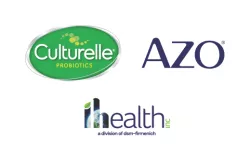Partner Voice

Intelliguard, a leading innovator in inventory and medication management solutions for hospital and health system pharmacies, is proud to announce its role as the Title Sponsor for Health Connect Partners’ 2025 Spring Hospital Pharmacy Conference. This prestigious event will take place from April 14 - 16, 2025, in the vibrant city of New Orleans, Louisiana.
As the Title Sponsor, Intelliguard will showcase its unwavering commitment to empowering pharmacy professionals with cutting-edge technology solutions designed to enhance efficiency, ensure medication safety, and optimize inventory management across healthcare facilities. This sponsorship underscores Intelliguard’s leadership in advancing pharmacy operations and patient care in the hospital and health system sector.
This conference will also mark the highly anticipated launch of Intelliguard’s new suite of product solutions. Designed with direct input from hospital pharmacy professionals, these innovative tools aim to address critical challenges in medication management, such as minimizing waste, improving compliance, and enhancing the overall accuracy of inventory systems. Attendees will have the exclusive opportunity to explore these groundbreaking solutions firsthand during the event.
“We are proud to be a sponsor alongside Health Connect Partners because of the value it delivers and our access to over 250 thought leaders and difference makers in the healthcare space. It’s this unfettered access and our capability to meet with each other one-on-one that we appreciate so greatly.” said Rob Sobie, Chief Marketing Officer at Intelliguard.
Health Connect Partners’ Hospital Pharmacy Conferences are renowned for fostering meaningful connections between healthcare executives and industry-leading solution providers. With Intelliguard’s sponsorship, the event promises an even more dynamic exchange of ideas, innovations, and strategies that will shape the future of hospital pharmacy operations.
For more information about Intelliguard and its solutions, please visit here. To learn more about the 2025 Health Connect Partners’ 2025 Spring Hospital Pharmacy Conference, visit here.
About Intelliguard: Intelliguard is a leading provider of advanced RFID-enabled inventory management solutions, empowering hospital and health system pharmacies to enhance medication safety, reduce waste, and improve operational efficiency. By delivering actionable insights and streamlined processes, Intelliguard supports healthcare providers in delivering the highest standard of patient care.

BRONX, N.Y. – Ruth E. Cassidy, B.S., PharmD, MBA, FACHE, FASHP, has been named the inaugural chief pharmacy officer at Montefiore Health System. Dr. Cassidy assumed her new position today.
Dr. Cassidy brings to Montefiore decades of pharmacy practice excellence, with an eye towards medication safety, regulatory oversight and delivery of exceptional patient care. She will oversee pharmacy services across Montefiore's acute and ambulatory locations as well as Montefiore's Specialty Pharmacy, one of the most advanced specialty pharmacies in the region, providing home delivery of medications throughout the Bronx and Westchester.
"There is no better person than Dr. Cassidy to be our inaugural chief pharmacy officer and member of our leadership team dedicated to enhancing patient and caregiver care and support," said Peter P. Semczuk, DDS, MPH, Regional Senior Vice President for New York City and Executive Director, Moses Campus & Faculty Practice Group, Montefiore. "Her role will be central as we continue to invest in new technologies and quality assurance strategies that streamline medication processes, reduce burden on providers and most importantly, optimize patient outcomes."
The Rx for Addressing Care Complexity
Chronic disease exacts a significant toll on the health and well-being of New Yorkers. More than 40 percent of New York adults suffer from at least one chronic disease, making medication management vital. Dr. Cassidy will be responsible for managing pharmacy operations, spanning novel cancer breakthroughs that genetically modify a person's own immune cells to attack cancer cells, to building on successful communications strategies that support care coordination and mitigate potential drug side effects following hospital stays.
"I've been privileged to spend most of my career serving Bronx patients and families," said Dr. Cassidy. "By joining Montefiore and leading pharmacy operations, an area that touches every service, I have the opportunity to leverage existing relationships with community partners, bring forth new collaborations across the system and ensure a consistent experience across our campuses that will benefit every provider and their patients, I can't wait to dive in."
Prior to joining Montefiore, Dr. Cassidy, served as Senior Vice President of Clinical Support Services and Chief Pharmacy Officer at SBH Health System, where she designed and oversaw the system's first Outpatient Pharmacy, first Specialty Pharmacy and launched an American Society of Health-System Pharmacists-accredited pharmacy resident program.
Cassidy earned her Master of Business Administration from West Texas A&M University, her Doctor of Pharmacy degree from the University of Florida College of Medicine and her Bachelor of Science degree in Pharmacy at St. John's University.

In June of 2023, Techdow USA Inc., a division of the Hepalink Group, successfully launched Enoxaparin Sodium (Enoxaparin) in multiple strengths of pre-filled syringes. Techdow USA’s Enoxaparin is critically needed and will be used primarily in the outpatient setting to treat and prevent harmful deep vein thrombosis and pulmonary embolisms. Techdow USA’s parent company, the Hepalink Group, is a global leader in naturally extracted active pharmaceutical ingredients (API) and finished drugs that sources from an extremely diverse and robust supply chain network.
Techdow USA sources materials from North America, Europe, and Asia. Additionally, Hepalink Group owns and operates Scientific Protein Laboratories (SPL), the largest producer of Heparin API in North America. SPL’s API business was created by Oscar Mayer in the 1970s and is a global leader in naturally extracted API production. The Hepalink Group has expanded their worldwide offerings to now include manufacturing and marketing of their high-quality and reliable finished drug products in the USA.
Techdow USA launched Heparin Sodium injection in 2022 followed by their next launch of Enoxaparin Sodium injection. Both Enoxaparin and Heparin Sodium are a complement to the Hepalink Group’s sophisticated vertically integrated products supply chain that provides increased supply reliability, competitive pricing, and robust quality.
The Hepalink Group, a global supplier to the market and trusted partner to the largest pharmaceutical companies, is delighted to provide our customers with the opportunity to directly access the market’s largest global supply of our finished drug products, Enoxaparin and Heparin. Techdow USA’s products provide patients and customers the supply reliability they demand and deserve
Techdow USA is a high-performance pharmaceutical company that is committed to quality and reliability to our patients and customers. We develop, manufacture, and sell critical FDA approved products such as Heparin and Enoxaparin Injection for use in hospital and clinical settings. We are vertically integrated in raw materials and can deliver hard to source products at a competitive price.
Techdow USA is among the fastest growing companies in our industry and are always looking for ways to improve and set a new high-performance standard. We are passionate about making a difference for patients and bringing effective medicines to market.

We envision a world where women are free to be open and honest about their intimate health, because women care about their health, and they know there is no issue too small to tackle—but they don’t always have the right tools. We believe in providing those tools so women can live life uninhibited—and that means breaking the taboos that surround women’s health. This is not just for AZO® users and not just for women, but also to enrich our society. When everyone is supported, healthy and safe, our world is better.

Seven out of 10 pharmacies are understaffed1. When a pharmacy is understaffed, every aspect of the business suffers: employees become overburdened, lines are longer, and customer service deteriorates, resulting in patient and employee churn.
Does this situation sound familiar?
Fortunately, there's a more sustainable solution than the continuous cycle of hiring and training staff – and you’re already familiar with it. Digital transformation, the adoption of online and integrated technology, can bridge the gaps created by staffing shortages to streamline workflows, enhance efficiency, and increase staff capacity.
While the concept sounds nebulous and overwhelming, we’ve identified the most impactful technologies to help you get started on your journey toward modernization.
No. 1: Streamline Transactions with Digital, Self-Service Payments
As a consumer, you use your phone to pay for goods and services nearly daily. From curbside pickup to third-party delivery apps, 82% of Americans use digital payments regularly2.
However, pharmacies and healthcare have been slow to adopt self-service payments due to regulatory concerns. But as dedicated healthcare payment providers have entered the space, it's now an area ripe for transformation and efficiency gains.
When payments are required to be made at the counter, patients arrive surprised by Rx prices, fumbling with payment methods, and asking pharmacists to update billing information, resulting in lengthy and frustrating transactions. At the most critical point in the patient's journey, the pharmacist is spending more time with the patient on operational activity rather than clinical engagement. No wonder pharmacies are the second most common place where Americans spend the most time waiting in lines 3.
Providing digital, self-service patient payments via text or email offers patients convenience while saving pharmacy staff time and effort4. Patients can pay how they want, when they want, and where they want, while pharmacists can focus on the core elements of their job. When patients arrive to pick up their prescriptions, pharmacists can verify their identity, see proof of payment with a QR code from the patient, collect the necessary signatures, and offer counseling with little to no billing support required.
Instead of a 10-minute wait time and an ineffective interaction at the register, the pharmacist and patient benefit from shorter, yet more effective interactions.
No 2.: Eliminate Manual Processes with a Mobile Point of Sale (POS) System
Is your staff wasting time using pen and paper? You're not alone. 71% of providers still use manual processes for collecting payments, signatures, and identification5. This pulls pharmacists and technicians away from their core duties, increases the likelihood of errors, and compromises security.
Manual pen and paper processes are most common during mobile transactions, like meds to beds or curbside pickup, because most point of sale (POS) systems have been reliant on on-premise, hardware-based solutions. But advancements in cloud computing and mobile devices have enabled technology providers to offer mobile, cloud-based systems that work on tablets and laptops without bulky servers.
With a mobile POS that’s integrated with your pharmacy management system (PMS), staff can capture all necessary patient and payment information as the transaction is being conducted6. This enables revenue-driving programs like meds to beds, drive-thru, curbside pickup, and line busting without adding extra workload for your staff. No more frustrating tasks like tracking down signatures with paper, spending hours uploading and scanning, or worrying about accuracy and compliance.
No. 3: Quickly Locate Prescriptions with an Automated Will Call System
In 2021, over 6.5 billion prescriptions were dispensed in the U.S.7 With 66,000 pharmacies in the U.S. that year, we can roughly estimate that each pharmacy handled an average of 98,000 prescriptions annually8.
Think about how long it takes for your staff to find a patient's prescription during pickup. Even if it only takes a minute, that's 98,000 minutes—or 1,633 hours (about 2 months)—wasted each year.
An effective, low-cost way to reduce this time is through an automated will call system. These systems use lights and/or sounds to help pharmacists quickly locate prescription bags. When dispensing a prescription, the pharmacist scans the prescription and bag before hanging it on the rack or in the refrigerator. When the patient arrives, the bag lights up or makes a noise, allowing staff to locate it instantly, reducing wait times from 10-30 minutes down to seconds.
While pharmacy automated will-call systems aren’t necessarily new, a lighted will-call system that integrates into the point of sale (POS) is. This helps streamline vendors and applications leveraged by pharmacy staff for greater efficiency.
Reclaim Time to Achieve More with Less
Imagine a pharmacy where your team can focus on what truly matters while experiencing more manageable workloads. Alleviating staffing shortages and providing better patient and employee experiences starts with technology. By doing the work now to modernize your most time-consuming processes, your staff, patients, and bottom line will benefit for years to come.
Self-service payments, mobile POS systems, and automated will call systems are just the beginning. What innovative solutions will you explore next?
Resources
- Untapped opportunities for health system pharmacies | McKinsey (mckinsey.com)
- New trends in US consumer digital payments |McKinsey (mckinsey.com)
- Consumer Survey: The State of Waiting in Line (2023) | Waitwhile
- Pharmacy Payments Pain Points: How to Avoid Them | Emporos
- 2024 Trends in Healthcare Payments Annual Report | J.P. Morgan (jpmorgan.com)
- mPOS: A Patient-Centered Solution | Emporos
- Total drug prescriptions dispensed U.S. 2009-2022 | Statista (statista.com)
- U.S. National Pharmacy Market Summary | IQVIA (onekeydata.com)

Long Grove Pharmaceuticals, an experienced and innovative pharmaceutical company specializing in complex generics and proprietary 505(b)(2)s, leverages its heritage of success through in-house research and development from parent company Capstone Development Services. Long Grove distinguishes itself in the generic pharmaceutical market with innovative approaches encompassing People, Products, and Processes. This includes in-house R&D for differentiated generics supported by Capstone, dedicated supply chains to introduce new supply to the U.S. market, and a seasoned leadership team fostering collaborative partnerships with customers and suppliers. Differentiated generics are delivered through proprietary products developed via the 505(b)(2) pathway, aided by rapid approvals and process efficiencies. Supply chain continuity and reliable partnerships further reinforce Long Grove's commitment to providing novel solutions to the healthcare sector.

The pharmacy supply chain is extremely complex, and the stakes are high for healthcare organizations. It falls on the shoulders of health system and hospital pharmacy leaders, along with their teams, to not only prepare and dispense drugs accurately and safely, but also manage all the processes and requirements related to drug products from procurement through point of use.
Discover the challenges keeping health system and pharmacy leaders up at night, and how U.S. health systems and hospitals are addressing them through supply chain management optimization.

Long Grove Pharmaceuticals, an experienced and innovative pharmaceutical company specializing in complex generics and proprietary 505(b)(2)s, leverages its heritage of success through in-house research and development from parent company Capstone Development Services. Long Grove distinguishes itself in the generic pharmaceutical market with innovative approaches encompassing People, Products, and Processes. This includes in-house R&D for differentiated generics supported by Capstone, dedicated supply chains to introduce new supply to the U.S. market, and a seasoned leadership team fostering collaborative partnerships with customers and suppliers. Differentiated generics are delivered through proprietary products developed via the 505(b)(2) pathway, aided by rapid approvals and process efficiencies. Supply chain continuity and reliable partnerships further reinforce Long Grove's commitment to providing novel solutions to the healthcare sector.

VPL TrajectRx empowers outpatient pharmacies by giving them the cloud-based shipping, tracking and compliance solution they need to build cost-conscious, stronger, and smarter last-mile operations. Created for pharmacists by pharmacists, our clinically minded platform gets prescriptions out the door, tracks and traces them to their destination, communicates shipping updates to patients and staff, and compiles necessary reporting for proof of delivery. By minimizing distribution errors, enhancing operational efficiency, and reducing time spent on the phone, TrajectRx ensures a streamlined and effective pharmacy workflow.

i-Health, Inc. is proud to support clinical research and advance scientific knowledge around probiotics, including a
recent investigator-initiated trial conducted by clinician researchers at Duke University using Culturelle® probiotics.